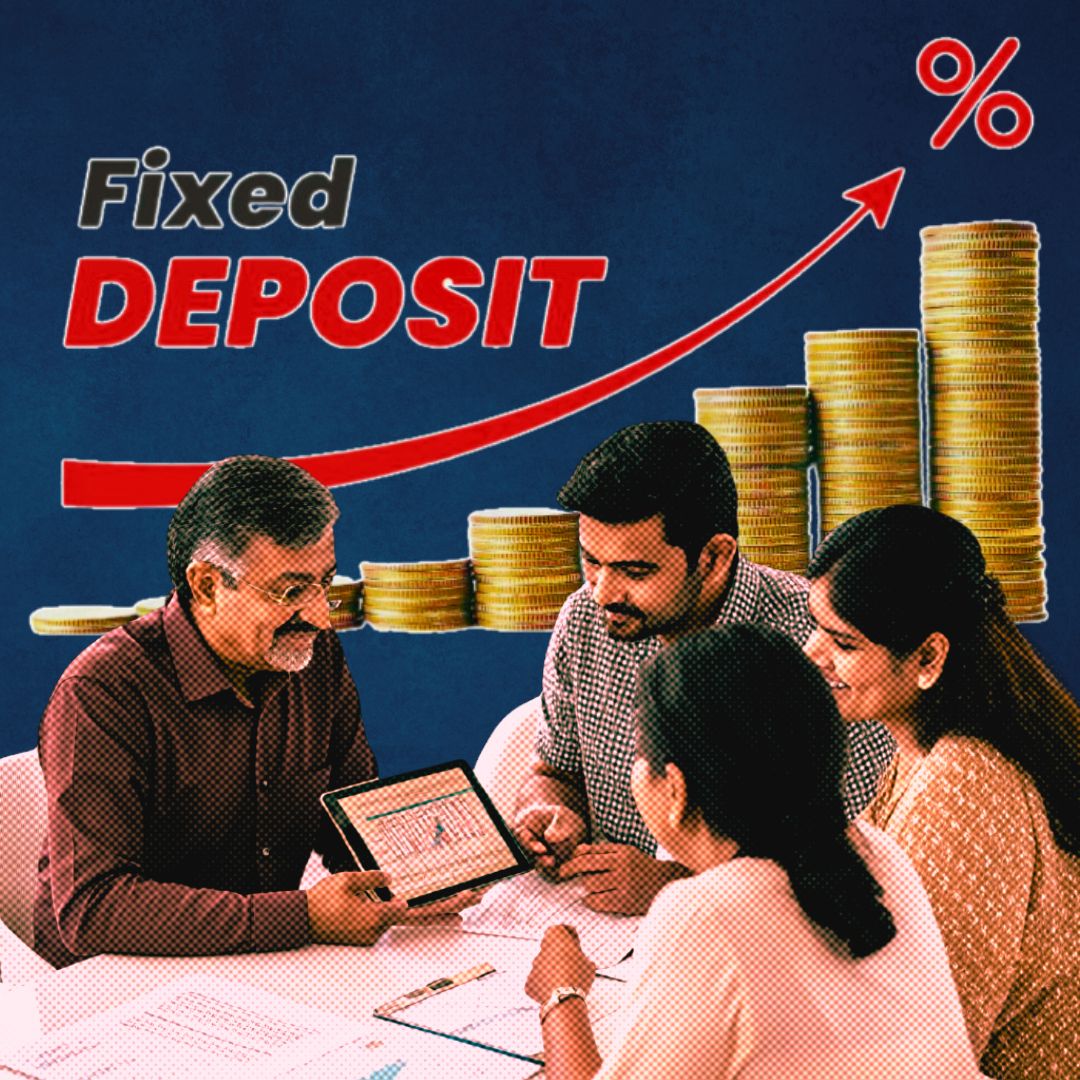Are you looking for a stress-free, risk-free way to grow your savings? For generations, Fixed Deposits (FDs) have been a reliable choice, providing stability, assured returns, and tranquillity. Whether you aim to save for future objectives, create a financial safety net, or just keep your funds secure, FDs offer an ideal combination of security and profit. But to make the most of this investment, you need to understand key factors, such as interest rates, terms, and tax implications. Are you ready to uncover the secrets to smart, safe investing? Then let’s get started!
What is a Fixed Deposit?
A Fixed Deposit is an investment instrument offered by banks and other financial institutions that assists you in saving a fixed sum for a particular time frame in return for a pre-decided rate of interest. You earn interest on the principal amount paid monthly, quarterly, or annually- whatever you have pre-decided.
FD Interest Rates: What to Expect?
The most important factor that needs to be considered while choosing a Fixed Deposit is its interest rate. It decides how much you will receive over the tenure of the deposit. It would be pertinent to compare the Fixed Deposit rates provided by different banks before settling for an FD.
For leading banks like ICICI Bank, the senior citizen’s Fixed Deposit rates go as high as 7.80% per annum and the general citizens up to 7.25% interest per annum. Thus, Fixed Deposits are, indeed, an extremely luring avenue for earning passive income without any market fluctuation.
Fixed Deposit Tenure and Terms to Know
An FD is normally maintained for a fixed tenure, which may range from seven days to 10 years. The tenure you choose depends on your financial requirements and liquidation needs. If you need urgent access to money, a short-term FD may be more suitable; however, if you can save money for an extended period, a long-term FD fetches you a better rate of interest and, therefore, is more suited for long-term saving.
The most common tenures for Fixed Deposits are:
- Short-term FD: from 7 days up to 1 year
- Medium-term FD: from 1 year up to 3 years
- Long-term FD: from 3 years up to 10 years.
With Fixed Deposits, you enjoy the flexibility of interest payments. You can opt for the interest payout monthly, quarterly, or annually.
For example, if it is for income-generating purposes, then you can go for the payout monthly. By going for an annual payout, you can reinvest the amount back to earn additional money.
Choosing the Right Fixed Deposit: Factors to Consider
There are some factors one needs to consider while thinking about availing an FD from a bank of your choice:
- Bank’s Stability: The bank should be financially sound and have a good reputation providing peace of mind while you deposit your money. Public sector banks are known for their reliability as well as for building trust among customers.
- Interest Rates: Compare the interest rates of the FDs. The higher the rate is, you are likely to earn a higher return on your investment.
- Tenure: Based on your liquidity needs and future financial plans, you should determine the tenure of investment. Returns must also be balanced with the need to access the funds.
- Early Withdrawal: Banks allow withdrawal before maturity. However, the corresponding fee may be levied. One can check the terms and conditions to figure out if an early withdrawal charge is applicable.
- Tax Implications: Assess the taxability of interest income under your applicable income tax slab and consider tax-saving FD options for better returns.
Tax Deducted at Source on Bank Fixed Deposits
TDS, also known as Tax Deducted at Source, applies to the interest that one earns on Fixed Deposits. If the interest from your income exceeds certain limits, then the bank will deduct part of it as TDS before crediting it to your account.
In the case of a deposit in the bank, if the aggregate interest for the financial year is more than the exemption limit then TDS is required.
If you have linked your PAN with the FD account, the bank deducts TDS at a rate of 10%. If you don’t have the PAN linked with your FD account, the bank will deduct TDS at 20%. To avoid this higher deduction, it is advisable to link your PAN to your FD account.
No TDS will be deducted if your interest earned is less than the exemption limit. Yet, at the same time, even when the TDS gets deducted, you can claim reimbursement while filing your tax returns if your total taxable income is below the prescribed limits.
Conclusion
Fixed Deposits are one of the safest as well as the most popular investment solutions for individuals looking for assured returns and safety of capital. While choosing an FD, an individual must compare the Fixed Deposit rates offered, understand the tenure options available, and also take into account the tax implication on interest earned. With the right planning, Fixed Deposits can be a highly effective tool for wealth accumulation, providing financial security and peace of mind for both short-term and long-term goals.











